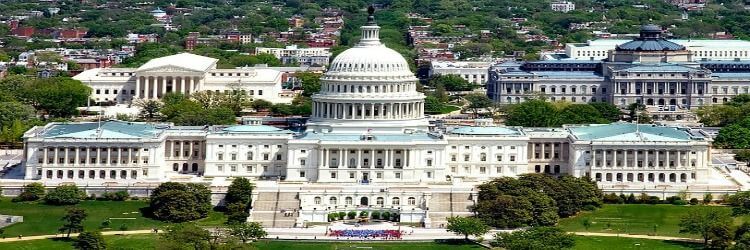
Will Congress enact remote sales tax legislation before Supreme Court rules on physical presence standard?
The explosion of ecommerce has exacerbated an issue that’s long rankled many states: their inability to tax out-of-state businesses making sales within their borders. States have challenged this physical presence limitation numerous times but the Supreme Court of the United States has upheld it, most recently in Quill Corp. v. North Dakota, 504 U.S. 298 (1992). That could all begin to change on April 17, 2018, when the court will hear arguments in a case that challenges Quill’s physical presence standard (South Dakota v. Wayfair, Inc.). The question is, could Congress intervene before the court issues a ruling in June?
The court noted in Quill that Congress “has the ultimate power to resolve” the underlying issue of interstate commerce, and may indeed be “better qualified to resolve” it. While that may be true, Congress has failed to come up with a solution thus far. Now, with a reconsideration of Quill on the horizon, there is renewed energy on Capitol Hill to settle the issue once and for all.
Interestingly, given the fact that the reconsideration of Quill hinges on a South Dakota law, the push for a congressional solution is also coming from South Dakota. After the Supreme Court revealed it would address the issue of online sales tax collection, South Dakota Representative Kristi Noem stated, “the need for legislative action on e-fairness is more urgent than ever before … . If South Dakota’s case is successful in the U.S. Supreme Court, Quill v. North Dakota will be overturned.”
To prevent the “free-for-all” that could potentially erupt in the wake of overturning Quill, Rep. Noem is pushing Congress to enact H.R. 2193, the Remote Transactions Parity Act (RTPA). She says it would “manage the transition while protecting South Dakota small businesses.”
The RTPA would:
- Permit certain states to require certain remote sellers to collect sales tax from the buyer according to the taxes owed in the buyer’s location (essentially legislatively reversing Quill v. North Dakota).
- Require states to provide in-state businesses with free software capable of determining the proper rate of tax to charge buyers in other states.
- Protect businesses that use such software from audit (the software provider would be subject to audits).
Only states that have simplified the administration of sales and use tax would be permitted to tax remote sellers.
Furthermore, RTPA would provide a phase-in period to allow businesses time to adjust to the new collection requirements. The first year, it would only apply to remote retailers with $10 million in annual gross receipts; the second year it would apply to remote retailers with $5 million in annual gross receipts; and the third year to remote retailers with annual gross receipts of $1 million. However, the small seller exception would not apply to a remote retailer that “utilizes an electronic marketplace for the purpose of making products or services available for sale to the public.”
Noem introduced the most recent version of the RTPA in April 2017. Like a similar measure, the Marketplace Fairness Act (MFA), it’s been held in the House Judiciary Committee by Chairman Bob Goodlatte, a lawmaker staunchly opposed to allowing states to tax remote sales.
Representative Goodlatte would also like the issue of remote sales tax to be solved by Congress rather than the Supreme Court. Indeed, last December, he filed a brief with the court asking it to let Congress decide if and how interstate sales should be taxed: “The fact that Congress thus far has not enacted a federal solution … should not be seen by the Court as a reason to give up on Congress.” Goodlatte’s favored solution, the Online Sales Simplification Act (OSSA), exists in draft form only and lacks widespread support.
So, could Congress could come together to come up with a solution?
Noem and her supporters believe chaos could erupt if Quill is overturned before Congress can establish parameters. Others disagree. A coalition that includes the National Taxpayers Union and Americans for Tax Reform is urging Congress to wait to see what the Supreme Court does, so it can rebuild limits on state authority “if the Court acts to dismantle limits on state power.”
If Congress were to enact the RTPA or similar legislation, would President Trump sign it?
According to Treasury Secretary Steven Mnuchin, President Trump “‘does feel strongly’ that state and local taxes should be applied” to purchases made over the internet. Last summer, Mnuchin told a Senate Appropriations Subcommittee on Financial Services and General Government that taxing online sales could be a “very important means for states to fund infrastructure, which is critical.” Whether that would translate into support for the RTPA or a similar measure is unclear.
What is clear is that retailers should be paying attention to this issue. Any business currently not collecting tax in all states where sales are made should consider what would happen if sales tax collection were to become compulsory in foreign states.
Learn more about Quill and why it matters in this on-demand webinar.















